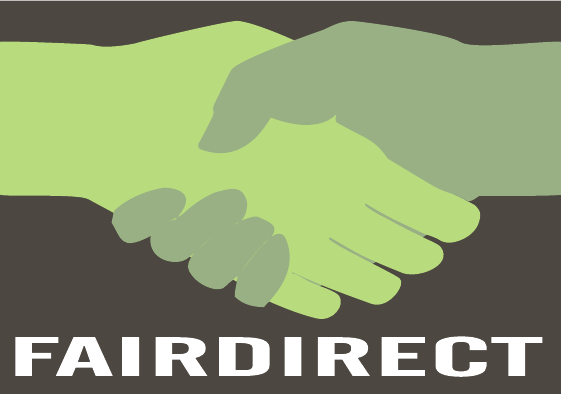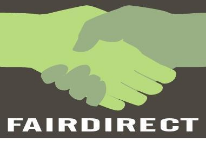
Important: The following does not constitute legal advice. It is merely content that has been found on the Internet and aggregated / referenced here. Use it at your full own risk. There is no warranty of any kind, and Fairdirect e.V. or its members cannot be held liable for errors in this consequences, and any damage resulting from them.
Unlike most other countries in the European Union, Belgium raises an excise duty (“tax”) on green, unroasted coffee beans. This has consequences for how to behave legally compliant when travelling with green coffee beans (or parchment coffee etc.) in your baggage, even when coming from another country of the European Union
This excise duty is a “national excise for products, not harmonised at EU level (autonomous excise products)”, instituted by the following laws: Loi 21/12/2009, Moniteur Belge 15/01/2010 [source]. The current rate for coffee is 0.201 EUR/kg net weight [source].
Coffee in your baggage when travelling
The competent authority for this excise duty is the “Administration générale des Douanes et Accises” [source], and its current website is here. There, you find a brochure for travellers, though only in French and Dutch. On page 6, it contains information for travellers coming from another European country. The same text is contained directly on their website here, allowing us a direct Google Translate translation.
This official guidance does not mention any maximum amount for coffee that could be brought into Belgium without excise duties, for private consumption. Since the coffee excise duty is a national excise duty raised by Belgium, there is no EU-wide indicative limit, but Belgium could set an own limit (as done by Germany for roasted coffee). So the fact that they do not mention such a limit indicates there is no national limit.
This (no limit by default) is confirmed on the EU’s web page about excise duties. That page talks mostly about excise duties harmonized at EU level, however it does not exclude those levied as per national legislation. It is not totally clear though if the rules laid out there also apply to the latter. In any case, the website reads: “There are no limits on what private persons can buy and take with them when they travel between EU countries, as long as the products purchased are for personal use and not for resale, […]. Taxes (VAT and excise) will be included in the price of the products in the Member State of purchase and no further payment of taxes can be due in any other Member State.” [source, at “Excise Duties → Who pays and when → Selling to private customers”].
This means that the only rules to adhere to for bringing green (or roasted) coffee beans into Belgium without worrying about excise duties are, as per the Belgian customs website, to (1) come from another member state of the European Union, (2) carry the goods yourself while travelling and (3) the goods are for personal use, which means use by yourself or by a person living under your roof [source].
In addition, there is some guidance for customs to decide if the goods are for personal use [source]. According to that source, customs can use several factors (listed below) to determine if the goods are meant for commercial purposes, and “can only rely on concrete evidence confirming these findings and deciding that the goods are held for commercial purposes.” This means one can prepare to make clear the goods are not of a commercial nature, for example as follows:
- “the commercial status of the person concerned”: Not being involved with coffee as a seller or trader at all. Document by proving your employment status.
- “the reasons for the movement”: Evidence for your story, such as an invitation e-mail to a party of friends.
- “the location of the goods concerned”: Not sure what that even means.
- “mode of transportation”: Probably, transporting coffee on a train will make you look more than a typical traveller than when transporting it on a car or truck in addition to hundreds of other commercial goods.
- “any document relating to these goods”: Bring an invoice showing you purchased the coffee recently as a private individual.
- “the nature of the goods and their quantity”: This includes indicative limits for alcohol and tobacco, but not for coffee. A reasonable limit that one may just assume could be similar to the German 10 kg limit for coffee, or even just 5 kg, to be on the safe side. That should be reasonable to justify as being for ones own consumption.
Coffee by postal shipment
This is a different case, and has not been thoroughly researched yet for this article. However from the FedEx import notes for Belgium it seems that the only way to bring coffee (green or roasted) into Belgium without dealing with the excise duties bureaucracy is as a gift. It has to be marked as “Unsolicited gifts not for resale or other purpose” on the customs content declaration, and the duty free limits are:
- shipped from outside the European Union: no weight limit, but a value limit of 45 EUR per shipment
- shipped from inside the European Union: weight limit of 500 g coffee per shipment, additionally a value limit of 118 EUR per shipment
There could be ways to utilize the lack of a weight limit for shipments from outside the EU to be able to legally send a non-trivial amount of coffee to Belgium. Namely, if there is a cheap and legal way of bringing it outside of the EU first, such as to Switzerland.
In case a postal shipment contains coffee for which excise duty has to be paid, it gets complicated. The EU website says about this case: “If you sell excise goods to your private customers on the internet, you must pay the excise duty and rates of the country where the customers live. In most EU countries the appointment of a tax representative is obligatory; one of their roles is to pay excise duty on your behalf […]” [source, at “Excise Duties → Who pays and when → Selling to private customers → Online and remote selling”].

